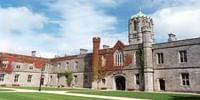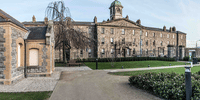Italian is a small, accessible department. Learning takes place in small groups, allowing you to reach a high level of linguistic proficiency and to develop important critical and analytical skills.You can choose from a range of modules on literature and art, film and music, politics and the media. Various pathways through the BA provide the opportunity to spend Year 3 studying at one of our partner universities in Italy, an experience which our students often describe as the best of their lives.Students in all years of the course take an intensive Italian language course, taught in small tutorial groups. Free access is provided to an online Computer-Assisted Language-Learning tool.Year 1Most of our students are beginners, but we also provide for the growing numbers of non-beginners taking Italian. In the award-winning Year 1 culture module, the focus is on modern Italian culture and society, providing you with a survey of Italy since unification in 1860, through the analysis of texts which include passages from literary works, films and documentaries, examples of art and architecture, music and historical documents.You will be guided in your reading through specially written introductions, notes and glossaries, and through the close readings led by lecturers in class. UCC Italian students have an excellent record in the NUI?s Scholarship for the best performance in first-year Italian, winning the award on at least eight out of 14 occasions since 1999.Year 2Students continue their intensive study of Italian language, in preparation for Year 3, which may be spent abroad, or final year. Modules on Italian literature, cinema and the media (continuing to focus on the modern period) give you an understanding of the country?s culture and society. At the same time, the modules provide you with an intellectual challenge, helping you develop important critical and analytical skills sought after by employers.Final YearStudents in final year take an advanced language course and may continue to specialise in modern Italian culture, as well as developing independent thinking through the study of Dante?s Divine Comedy and other landmarks of world literature.
₹19.3 L/Yr
€18,200 /Yr
Important Dates
| Event | End Date |
| Application Deadline For September Intake | May 31, 2023 |
Fees & Funding
Tution & Application Fees
| Year | Year 1 | Year 2 | Year 3 | Year 1 | Year 2 | Year 3 |
| Tuition Fees | ₹1766359 | ₹1766359 | ₹1766359 | ₹1766359 | ₹1766359 | ₹1766359 |
| Other Fees | ₹158655 | ₹158655 | ₹158655 | ₹158655 | ₹158655 | ₹158655 |
| Total Fees | ₹1925014 | ₹1925014 | ₹1925014 | ₹1925014 | ₹1925014 | ₹1925014 |
Ask your question
Similar Colleges You Might Be Interested In
- Similar Colleges
No Ratings Found!!
Follow
No Ratings Found!!
Follow
No Ratings Found!!
Follow
No Ratings Found!!
Follow
No Ratings Found!!
Follow











